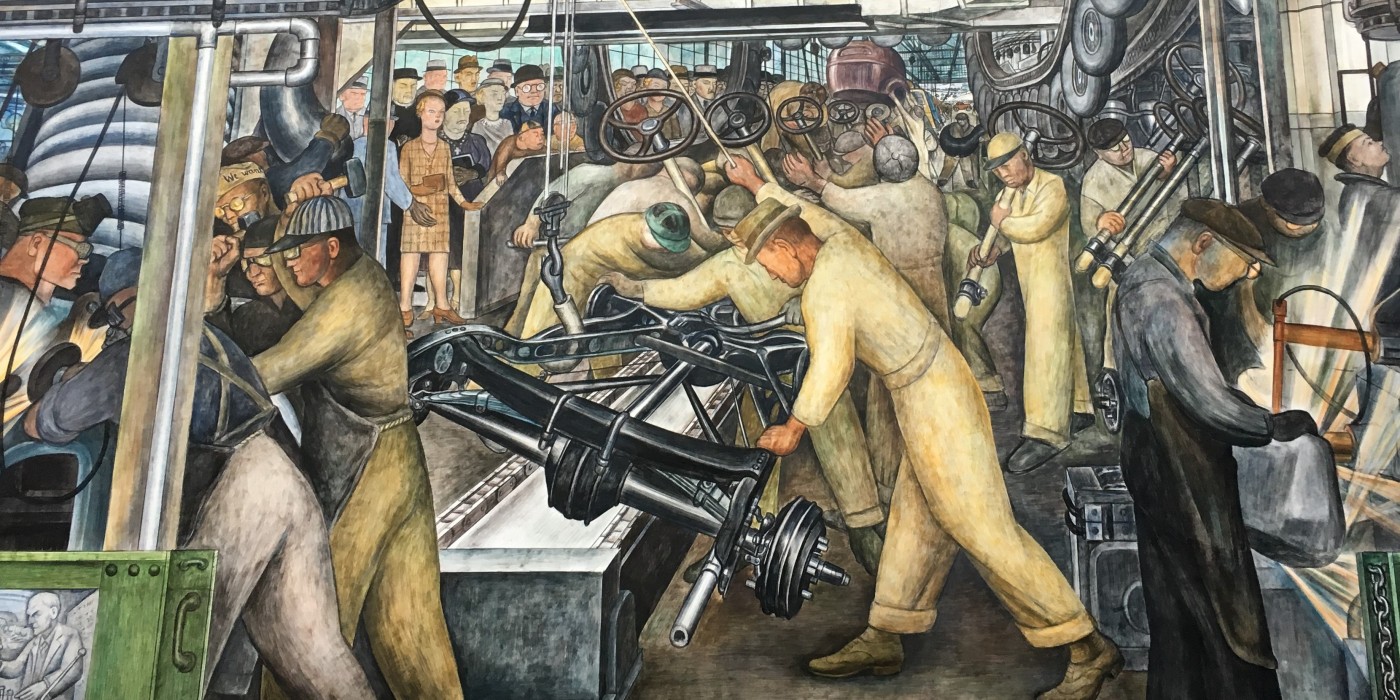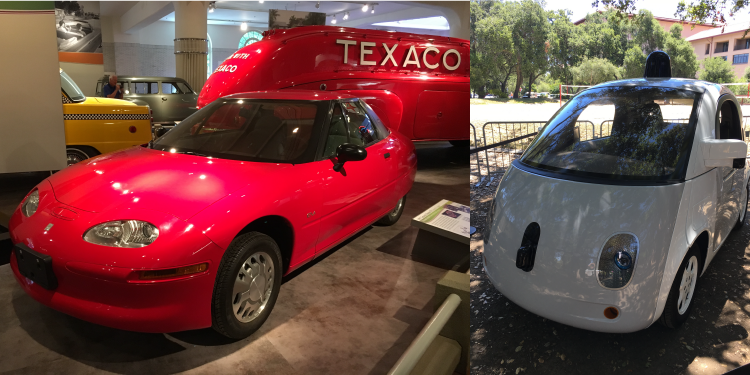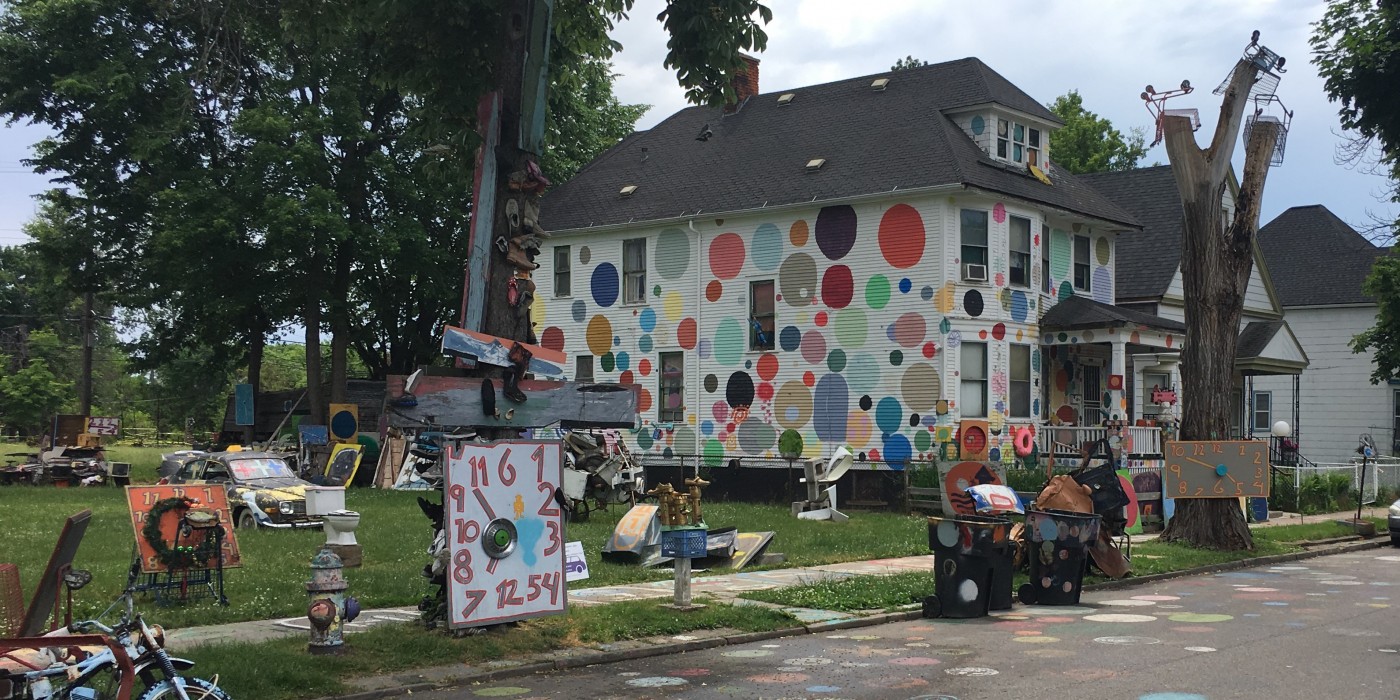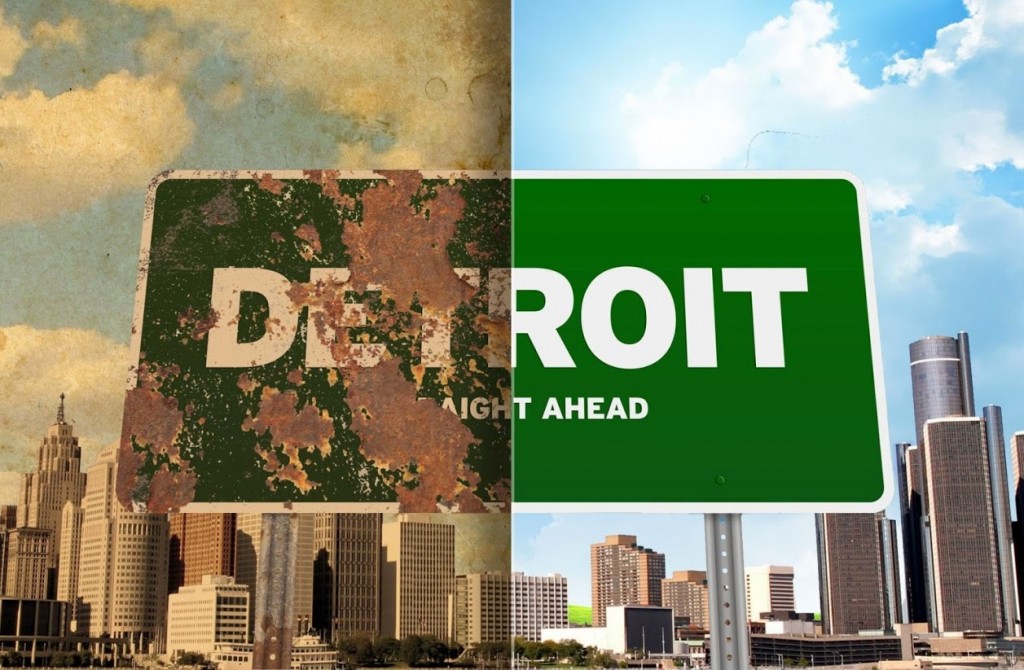When the people here at Elaphe get creative, all sorts of interesting facts and world wonders start to fly about. In our last story we were discussing the future and the technologies from the present which are paving the way in the preparation for the driverless era. As a breakthrough automotive technology company ourselves, we dove head first to try and compare the innovative environments facilitating the automotive tech boom with a report from the trenches – from the “big three” in Detroit to the new kids on the block from California.
“We hope for better things; they will arise from the ashes”
We usually hear about entrepreneurs when they appear in the headlines with their innovative internet business or the latest smartphone app. However, that is not the whole story – by all accounts, a record number of ventures started by young people are flourishing in more traditional sectors as well. Despite the feeling that within these sectors large companies have existed forever, they all inevitably started as ventures of innovative individuals or groups. Talking to people that have been there for the ride leads to nostalgic recounts of qualities that made their company great, but were lost somewhere along the growth of the company. And that’s why young, agile, innovative and open small businesses have a chance to change traditional industries and why corporations have something important to learn from them.
If there is a good place to compare the duality of the big conservative traditional and small innovative business, it’s Detroit. Rising from the ashes of a once powerful and rich city, that gave us the automobile, Motown and electronic music, is a new community fueled by the enthusiasm of entrepreneurs and creative young people.
 |
 |
| Left: The famous Detroit industrial murals. Right: Campus Martius – the focal point of rebuilding Detroit after the great fire, now a popular hangout for creatives and entrepreneurs. | |
For decades depending on the “Big three” the city crumbled under the forces of globalization, automation and financial crises, but is now finding that innovation, entrepreneurship and people are the way to turn the tide.
Innovation
And Detroit is the place to be for an automotive startup like Elaphe, striving to deliver the next generation e-powertrain for our cars of tomorrow. An environment so densely packed with automotive history and knowledge, motivated by a bad run of the last decades is ripe for change and fresh ideas. Spending time in the area talking to people inside and outside the automotive industry is inspirational. Innovation is on the forefront of their strategy for success, whether it is an electric car startup, a fashion company, a brewery or even a loan institution. Recognition, that in a global world following is no longer an option, has launched innovative companies like Shinola and Quicken Loans to the top of their industries. The best executives and engineers are leaving well paid and secure jobs in traditional automotive companies to start or join start-ups – they know the industry and they know that innovation can disrupt it, despite (because?) being big and established.
 |
| Left: Detroits’s own General Motors EV1, the first mass-produced and purpose-designed electric vehicle of the modern era from a major automaker. Right: The Google self-driving car – one of the first complete vehicles coming from a mainly technology company in Silicon Valley. Photo by Elaphe Propulsion Technologies Ltd. |
Automotive startups now consist of people from the “big three”, complemented by people with background from Apple, Google, Facebook and other tech companies – all striving to disrupt a space that lacked innovation for so long. It is reaffirming to Elaphe to find like-minded people and organizations, because change can only be achieved by swimming against the stream of traditional technologies and challenging established concepts developed and used in the last century.
Entrepreneurship
In some respects there is a stunning resemblance of the Detroit area to the Silicon Valley. Such a large concentration of knowledge within an industry can only be found in a few other places in the world. What Silicon Valley means for the IT, Detroit means for the automotive. The emphasis is on the present tense, since the knowledge is all still here but only when combining it with an entrepreneurial spirit a healthy and competitive ecosystem can thrive. Therein lies the difference between both environments, but young Detroiters are recognizing the gap and striving to close it.
In Ann Arbor, the home of Michigan University, the second annual Tech-trek had been held this year. Exhibiting 50 startups and ventures from different industries, all within walking distance, shows the mindset that is once again developing in the region. Michigan U along with local universities like Wayne State and Michigan State feeds the ecosystem with some of the world’s best engineers and medical professionals not unlike the San Francisco bay area’s Stanford and Berkley do for the tech companies in the Silicon Valley. Start-up accelerators and co-working spaces are sprouting everywhere and combine talent, technology and capital to breed a new generation of innovative businesses. Diverse industries represent a risk averse strategy for the city, learning from the history of dependence on a single market. Among all the properties of the economic ecosystem entrepreneurship is the key ingredient that transforms innovation and know-how into tangible change.
People
Change also depends on people. The underlining characteristic of Millennials is their preference for change, inherent flexibility and a constant thirst for new experiences. Out of these values comes their desire to create and grow something new and meaningful and their confidence to believe they alone can change the world. The projects and companies they create are on a mission. To save their neighborhood, their city and some of them – the world. And just like that, small changes, like a stylish food court in downtown Detroit or the out-there Heidelberg project in the midst of a run-down part of town, start a chain of events that ends up reinventing a city once dubbed “the mistake on the lake”.
 |
| The Heidelberg art project, the evolving art installation on Heidelberg street in Detroit. |
Today, people proudly announce that they are “do-ers”, listing all the attempts they have made in the past, bragging about their failures and glorifying their learnings. Recognition of the value of failure is one of the things missing in Europe and in many places in the US and hinders the motivation of people to start new ventures. It seems that Detroit is so used to failure it is one of the best places to have a go and more and more people recognize Detroit as an opportunity to make something that matters to the world. The openness, hospitality and sincerity of the people in the area, resembles the state of mind in a disaster stricken area and caters to an open an optimistic environment for business creation and growth.
Speramus meliora; resurget cineribus
As numbers go Michigan’s automotive industry alive and well. In 2015 a total of 17.47 million vehicles were sold — beating the previous record of 17.41 million (in 2000). But is it really ready for what’s to come? Standing on the brink of the new industrial revolution, based on artificial intelligence and connected devices, new companies are and will be formed thriving on innovation and change. They will be formed globally and their success will depend on innovation, entrepreneurship and people.

Thus, Detroits 211 year old motto: Speramus meliora; resurget cineribus (We hope for better things; they will arise from the ashes) has as much meaning today as ever before. The future of the rise of Detroit depends on the automotive industry learning from new automotive tech companies and embracing startup mindset from all industries. It’s something we support with all our hearts.
Learn more about Elaphe™ in-wheel technology at www.in-wheel.com.
